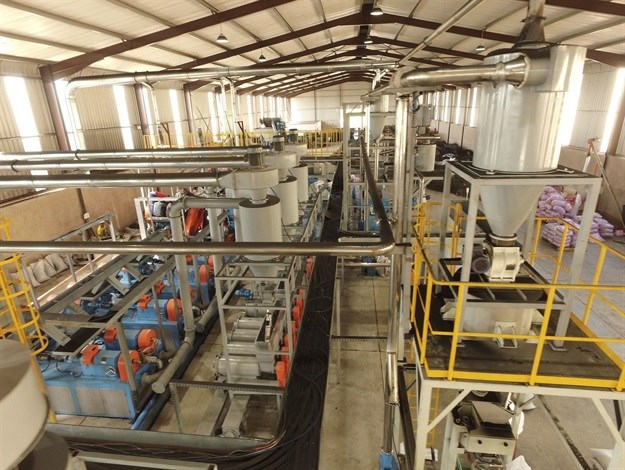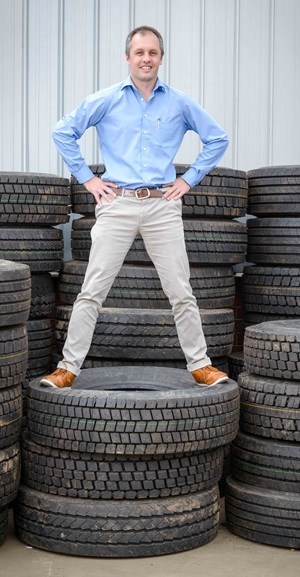
Top stories



HR & ManagementNational minimum wage 2026: What workers (and employers) need to know
Danelle Plaatjies and Ludwig Frahm-Arp 11 hours



More news





















A large portion of Mathe Group’s rubber crumb goes to the Van Dyck Floors factory in Prospecton where it is used to manufacture rubber flooring and paving and acoustic underlays for different types of floor covering which are then exported.
The factory has also provided rubber crumb for use as infill for sports fields utilising artificial grass in South Africa, Namibia, Zambia, Botswana, Tanzania and the Congo. It is also used for the retreading of tyres, in modified bitumen for road resurfacing and for the manufacture of non-slip paint by the coating industry.
Zarrebini says that Mathe Group only recycles used radial truck tyres which are delivered weekly. These are sorted and then go through a three-phase crushing process. Separators produce different sized particles for different applications.
Approximately 30% of each 68kg truck tyre comprises hi-tensile steel which is removed using magnetic separation. Because this cannot be compacted, it is manually loaded into large bags which are placed in shipping containers for export to Korea and Australia. Each week, Mathe Group despatches two to three 40-foot containers which find their way to the motor industry and the shipping industry where it is used to make hulls of boats and ships.
Zarrebini says the recycling of the nearly 11-million used tyres that build up in South Africa each year is an environmental imperative. As tyres are robust and durable, they are notoriously difficult to recycle and take extremely long periods to biodegrade. Up until a few years ago, they were left to accumulate in landfills or large pieces of land or even burnt for warmth or to remove scrap metal in disadvantaged communities. The resulting noxious gases such as dioxins and carbon monoxide made them both an environmental and a health hazard.
“We rotate our stock of tyres from an environmental perspective. The number of tyres received each delivery varies,” he says.

The R20m plant in Hammarsdale, which came on stream at the beginning of February 2016, processed 65,000 tyres last year and is on track to recycle approximately 150,000 this year. It currently runs 24 hours a day, seven days a week. Due to strong demand, it will run over the December/January festive period.
“We have a full manufacturing programme for the next 10 months. Because we currently sell all the crumb we produce, our objective is to increase capacity,” Zarrebini explains.
He says Mathe’s client base has grown considerably since it started out producing rubber crumb in limited quantities from a small factory in New Germany in 2012. The joint venture with PFE International was intended to ensure off take of the majority of product for Van Dyck.
He says that, up until now, recycling of tyres in South Africa has not been sustainable because of limited use of rubber crumb and substantial set up costs. As a result, small companies using antiquated equipment have been unable to compete with imported product that has been subsidised by governments in the countries of origin.
Vertical integration within the PFE supply chain, which has ensured a ready internal ‘market’ for rubber crumb, together with the funding of the multi-million rand plant by shareholders rather than external funders, has given Mathe a considerable competitive advantage. Although Mathe initially approached potential users of rubber crumb to buy the surplus, he says the growth in Van Dyck’s needs together with approaches from potential customers has been a recipe for success. He says a number of new clients and products are waiting in the wings.
The plant is extremely flexible when it comes to meeting different product requirements. However, Zarrebini explains, a great deal of product development is needed in the early phases to ensure that the rubber crumb produced matches the specific needs of a particular customer. He says that Mathe is currently working on trials for a new product which will be used as an aggregate for mixing concrete.
To further improve efficiency and output, the company plans to continue to invest in its Hammarsdale factory.